Table of Contents
Picture this: You’re out in the scorching sun, sweating buckets and feeling your heart race like it’s on a marathon. Have you ever wondered why dehydration and heart rate are so closely intertwined?
Buckle up as we explore the connection between dehydration and tachycardia—the rapid heart rate. We’ll also answer the question: Can dehydration cause rapid heart rate and chest pain? Get ready for some eye-opening insights about your heart rate when dehydrated!
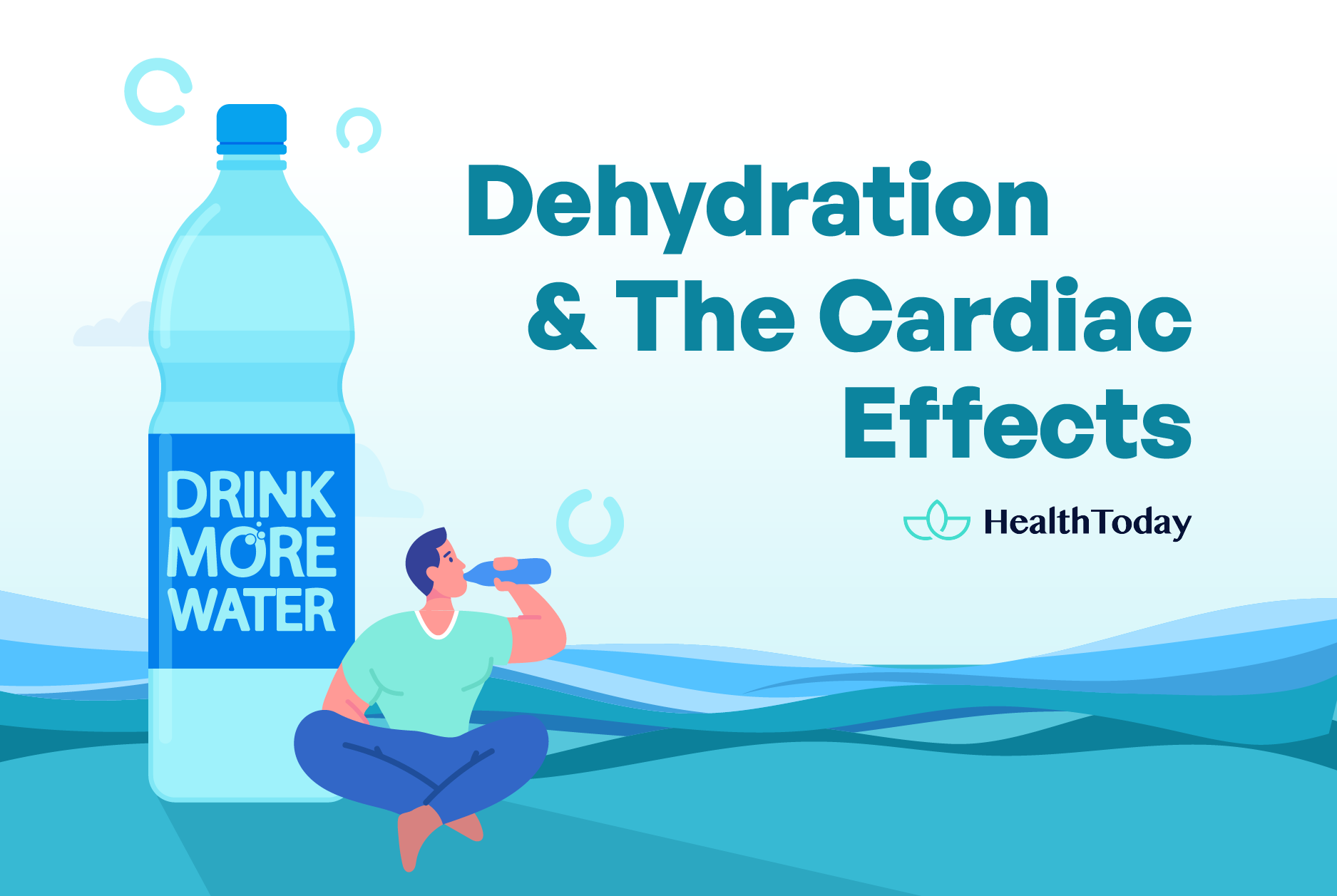
Dehydration and heart rate: Exploring the connection
Our bodies are made up of around 55%‒65% water. Our hearts, particularly, contain a remarkable 73% water content (1, 2).
However, per the lay press, over 75% of Americans face chronic dehydration, though this is not fully supported by medical literature, in which their bodies lose more water than they can handle (1).
Moreover, dehydration is a major reason people are admitted to hospitals (1).
If the body does not have enough water, our blood volume—a crucial factor in heart pumping—goes down. It may entail some heart-related problems since the blood volume, blood pressure, and heart rate are connected naturally (1, 3, 4).
Usually, our heart rate and blood pressure adjust to keep the blood volume balanced (4). When we’re running short on blood volume, there will be a drop in our blood pressure (1). It means that the heart can pump less blood, with important nutrients like oxygen.
Dehydration isn’t just about losing water—you may also lose key electrolytes such as sodium, magnesium, and potassium. Their balance is crucial for normal heart function (5).
Adding to the complexity, the lack of water can foster the secretion of a vasoconstrictor (blood vessel narrowing) hormone called Angiotensin II. Hence, our blood vessels may constrict, making it harder for our blood to circulate and straining our hearts (6, 7).
In turn, the heart will work harder to pump blood around. For this reason, we may notice an elevation in heart rate when dehydrated. This can also explain the link between dehydration and tachycardia, where your heart starts racing with a beat count of over 100 per minute (8, 9).
Dehydration can land you in the hospital. It can lower blood volume, leading to low blood pressure, electrolyte loss, and even tightening blood vessels. Your blood supply, in effect, will run low. That puts an extra burden on your heart, making it pump faster than usual to meet the body’s oxygen demand.
What are the cardiac effects of dehydration?
Specific sensors, called baroreceptors, monitor blood pressure in our blood vessels and hearts. When they sense low pressure due to dehydration, they give a heads-up to the brain, telling us—via thirst—to grab some water. They also help regulate our heart rate (4, 10).
However, if you can’t compensate for those water losses, research suggests you’re more likely to face heart problems (6).
Are you dehydrated?
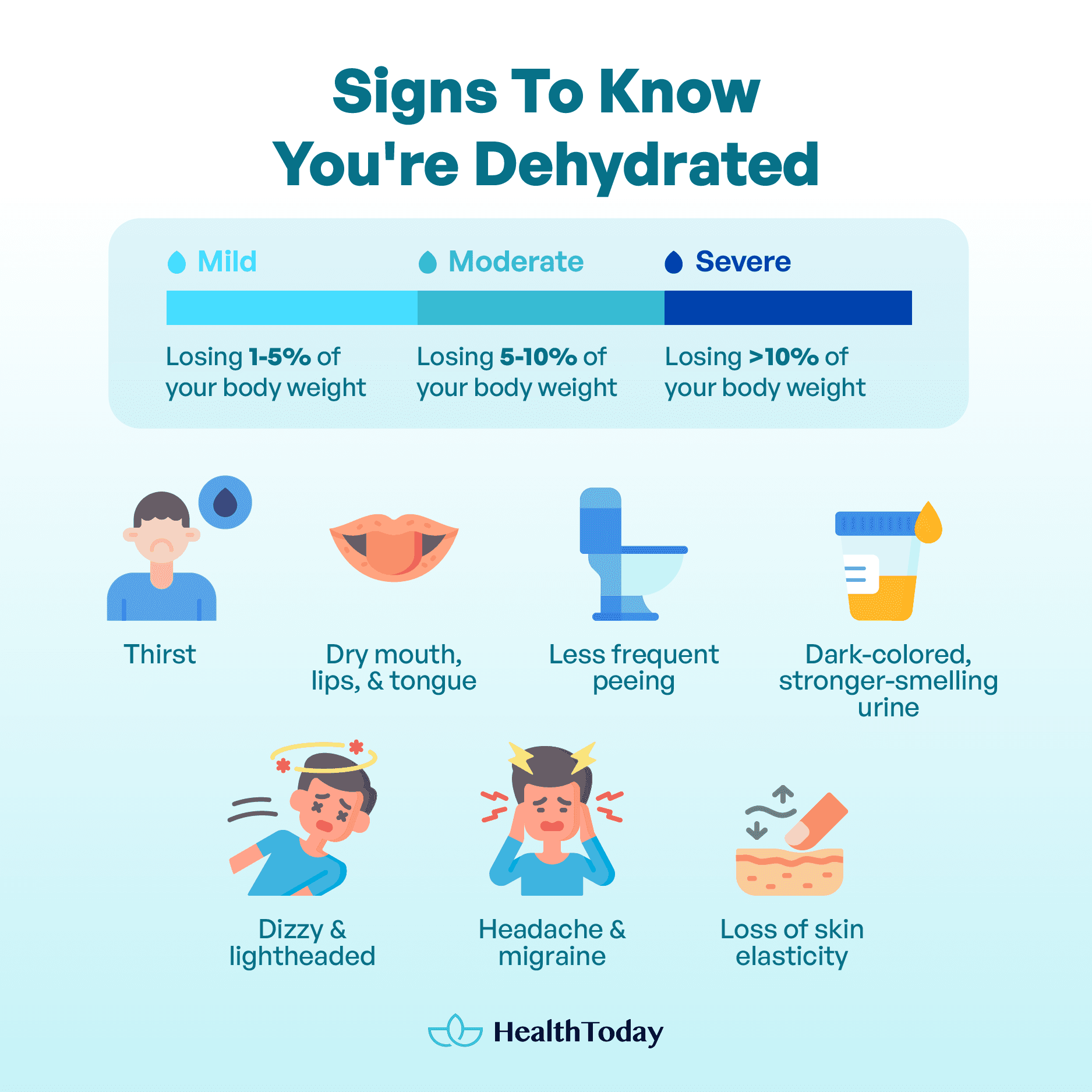
Experts categorize dehydration based on how bad it gets (6):
- Mild: losing 1‒5% of your body weight
- Moderate: losing 5‒10% of your body weight
- Severe: losing more than 10% of your body weight
Check out these signs that you are lacking hydration (1, 11, 12, 13):
- Thirst: Your gut sends some signals of water loss to your brain. Then, the brain will tell the body to feel thirsty.
- Dry mouth, lips, and tongue: Our saliva often helps moisten the mouth. Dehydration also means less saliva flow.
- Less frequent peeing: Your body conserves water by reducing urine output.
- Dark-colored, stronger-smelling urine: Water loss makes your urine become more concentrated waste products (urea and ammonia) and solutes. Therefore, your urine may have a darker color and a more pungent odor.
- Dizzy and lightheaded: Lack of water can decrease blood flow to the brain, leaving you disoriented and confused.
- Headache and migraine: The decrease in blood flow caused the aura (classic migraine) symptoms, and the headache came later.
- Loss of skin elasticity: It is common when your skin loses moisture. You can pinch your skin, and returning to a normal appearance takes longer.
In more severe cases, you may look tired or sleepy with dry skin and sunken eyes. You may feel muscle cramps, palpitations, irritability, shock, or unconsciousness (1, 14).
Infants can become dehydrated more quickly than adults; even mild dehydration should be taken seriously. Here are a few red flags that your baby is dehydrated (11, 15):
- Sunken soft spot (fontanelle) on top of their head
- Few or no tears when they cry
- Being tired or irritable
- Fewer wet nappies than usual
- Sunken eyes
Can dehydration cause irregular heartbeat?
As we mentioned earlier, dehydration can make your heart beat faster overall. You may notice an unpleasant feeling in your heartbeat, such as pounding, which we call palpitations (8, 14).
However, it is rare and occurs when dehydration reaches a severe level (1, 8).
In that scenario, besides drinking more water, you should find a chill place and be reassured. You can also explore some relaxation techniques, like breathing exercises or meditation. Rid yourself of stimulant substances like caffeine or alcohol (8, 16).
Can dehydration cause chest pain?
Can dehydration cause chest tightness? Sometimes, chest pain is an alarm to tell you you should drink more water. Yet dehydration is not a direct cause of chest pain; it is just one potential trigger.
Chest pain from dehydration may come with an extra workload on your heart, especially if you suffer from coronary heart disease and other heart conditions (6).
The tightened blood vessels—caused by dehydration—can hurt their lining and increase the amount of harmful substances called ROS, or reactive oxygen species (6, 7).
Excess ROS can cause inflammation and damage to your cells and tissues, including the blood vessels in the chest area. They may also be part of the plaque-developing process that blocks arteries if you get coronary heart disease (17).
This can prompt angina (lack of blood flow to your heart muscle), heart attack, or stroke, characterized by a squeezing pain in your chest (18, 19).
These two coronary heart diseases can trigger angina (20):
- Coronary artery disease: where plaque builds up in those big arteries that deliver blood to your heart.
- Coronary microvascular disease: affects those small branches of your major coronary arteries.
The link between dehydration and chest pain may also be traced back to the loss of electrolytes. They are essential for proper heart function. Thus, their imbalances and deficient potassium levels (hypokalemia) can worsen chest pain (5, 21).
Moreover, the muscle cramps caused by electrolyte imbalances may also provoke chest pain, making your jaw hurt (22).
When to seek medical help?
Moderate to severe dehydration may increase the chances of hypertension (high blood pressure) and cardiac fibrosis (heart scarring). In those with pre-existing heart conditions, severe water loss can drive thrombosis (forming blood clots), heart failure, and stroke (6, 23).
Heart palpitations alone may not be an emergency and may not require professional treatment. Yet chest pain and palpitations may imply an emergency, especially when they come with (8, 15, 23, 24):
- Extreme thirst
- Trouble breathing or shortness of breath
- Feeling tightness in your jaw, neck, arms, or upper back
- Unusual sweating
- Dizziness, lightheadedness, or unexplained confusion
- Not passing urine for eight hours
- Fainting (also known as syncope or loss of consciousness)
At this point, it can be life-threatening as you may suffer a stroke or heart attack. Hence, you should call for help (911) and go straight to the emergency room (23, 25).
The risk of having a heart attack is higher if you have pain in both arms or sweating. If the pain worsens when you press on a specific spot on your chest, such as against your rib cage, it’s less likely to be a heart attack but more likely to be a pain in your chest wall (26).
Some may confuse the terms angina and heart attack. Angina is chest pain that occurs after physical activity and disappears if you rest or take medicine but is due to strain on the heart. But if you had a heart attack, the pain would be more severe and wouldn’t go away even with rest or medication (27).
If you’re unsure whether your chest pain is angina or a heart attack, call 9-1-1 immediately. Every minute matters in a heart attack (25, 27).
Some may be concerned about their symptoms that don’t need urgent treatment. It’s best to make an appointment to see a doctor in these cases.
Dehydration can increase your heart rate, yet it isn’t the direct cause of chest pain. It can contribute to angina, heart attacks, or strokes, all known for their chest pain symptoms. Seek medical attention if breathing troubles, unusual sweating, dizziness, or fainting accompany your palpitations and chest pain from dehydration.
Can dehydration cause PVCs?
Premature ventricular contractions (PVCs) are extra heartbeats that disrupt your regular heart rhythm (28).
PVCs can be triggered by dehydration. Yet many other factors can drive it, including stress, poor sleep, medication, stimulant drugs, aging, and hormones. Most of the time, we don’t know why PVCs happen (29, 30).
If you have PVCs, you may not have any symptoms. Some may experience palpitations, a feeling of fluttering, or your heart skipped a beat. In severe cases, you may face dizziness, fatigue, or even chest pain (30, 31).
Your heart might not be skipping a beat. Simply put, the electrical signal for your heartbeat starts from a different spot than usual, which can make for a short pause before your next regular heartbeat (28, 31).
You don’t need to worry, as PVCs are normal. They can happen to anyone and often go away alone (31).
Having between 10,000‒20,000 PVCs per day can harm your heart. Yet, this condition can usually be treated and reversed in most patients (22, 29).
Dehydration can trigger premature ventricular contractions (PVCs), characterized by extra heartbeats that can mess with your heart’s rhythm. However, PVCs can also be caused by multiple factors like stress and poor sleep. But don’t sweat it—PVCs are typically normal and tend to resolve independently.
Drinking water for better heart health – Suggestions
Staying hydrated is one of the best things you can do for your heart health. You may lose water throughout the day while sweating, bathroom breaks, getting your workout on, or even just breathing (23).
Dehydration can be easily avoided and treated if we understand it.
When to reach for your bottle?
Be informed about the signs of dehydration, as we discussed earlier. Drinking more water is particularly important if you are (1, 15, 29):
- throwing up
- having diarrhea
- having a fever
- being in the sun for too long and getting heatstroke
- sweating too much
- drinking too much alcohol
- taking diuretics or laxatives
- having diabetes
- facing acute or chronic kidney disease
- having asthma or chronic obstructive pulmonary disease (COPD)
- getting pancreatitis (inflammation of the pancreas)
You may also need more water in hot climates or move frequently (29, 32).
Furthermore, older people are 20‒30% more prone to dehydration as their body becomes worse at giving thirst signals. Some may face immobility, diabetes, or renal disease (1, 33).
Even when our bodies fail to send thirst signals, we can check our urine to ensure we are well-hydrated. Normal urine will be pale yellow and mostly clear (11).
If you’re mildly dehydrated, you can quickly return to home. Find a cool spot and drink fluids with electrolytes; you’ll be back on track.
Grab a sports drink or an over-the-counter rehydration solution to get your body the electrolyte balance it needs, especially after vomiting or having diarrhea (11).
For the more severe cases, your doctor may hook you up with intravenous (IV) fluids containing salts and sugars (11).
How much water should you drink?
Generally, an adult male needs about 3.7 (125 ounces) liters daily, and an adult female needs about 2.7 liters (91 ounces) a day from food and beverages (34).
However, most experts agree that the definitive amount varies from person to person due to age, location, medical status, and lifestyle choices (34).
It’s best to follow your thirst cue. It’s no secret: if you’re thirsty, you are already dehydrated. Our guts and brains have a smart and reliable communication system to send us those signals (10).
Note that taking fluids isn’t the only way to get hydrated. You can reach your amount by consuming certain foods, water, and other liquids (34).
When recovering from an illness, gulping down liquids might not be easy. Take it easy; start with small sips, then slowly increase your intake (11).
Infants and small children who are dehydrated shouldn’t be given large amounts of water alone. It can dilute the already low level of minerals in their body, triggering other problems. Instead, provide them with a rehydration solution commonly found in pharmacies (35).
On the flip side, sometimes you may drink too much water or get hyponatremia (low sodium).
Excess water intake can also cause serious problems like heart failure, bone fractures, and urine problems. This results from diluted sodium concentration in your blood (36, 37, 38).
Common symptoms of hyponatremia are (37, 39):
- Feeling confused, irritable, or restless
- Having a headache
- Feeling tired or weak
- Having more urine (which is clear or transparent)
- Not feeling hungry
- Having convulsions (sudden, violent movements)
- Having muscle weakness, spasms, or cramps
- A feeling of nausea or vomiting
More tips for conquering your hydration goals
A glass of water is always a good go-to, yet there are other options in your hydration game. Sparkling and infused waters are also a great way to jazz it up.
Plain coffee or tea, in moderation, can give you an alert boost. Nutritional beverages, such as milk or 100% vegetable juice, are also good options (40, 41).
Before crushing a workout, athletes are recommended to drink 500 to 600 ml of water or a sports drink 2 to 3 hours before exercise and an additional 200 to 300 ml of water or a sports drink 10 to 20 min before training (41, 42).
Yet, you should avoid those less-healthy options like sodas (even diet sodas), concentrated fruit juices, and alcohol (29, 41).
On another note, foods with high water content, such as many fruits and vegetables, can also help fight off dehydration. They may give you a hearty dose of fiber, vitamins, minerals, and antioxidants.
Some examples are soups, celery, leafy greens, zucchini, tomatoes, berries, melons, apples, and grapes. They all contain over 90% water (29, 11, 43).
To keep on track, you can opt for a drinking reminder app and choose water when eating out and during meals (29).
Some smart water bottles stress times and amounts for you. Keep them by your side wherever you go. You’ll soon get into the habit of sipping it without realizing it.
Maintaining heart health involves prioritizing hydration. Dehydration may go hand in hand with vomiting, diarrhea, fever, excessive sweating, and medications. Individual water requirements vary, but listening to your thirst cues is the key. Also, remember to eat juicy fruits and veggies and choose healthy beverages.
Can dehydration cause arrhythmia?
Dehydration can trigger tachycardia (rapid heart rate) and an arrhythmia pattern (abnormal heart rhythms). Simply put, dehydration can lower blood volume, meaning less fluid is available for circulation. That puts extra strain on your heart, making it pump faster than usual.
Can dehydration cause a heart attack?
Dehydration itself is not a direct cause of a heart attack. However, severe dehydration can strain your cardiovascular system, trigger more damage, and increase your heart rate. In turn, it may increase the risk of a heart attack in susceptible ones.
Will drinking water lower heart rate?
Drinking water can lower the workload on your heart, thus lowering your heart rate. Simply put, the blood volume is optimized, allowing your heart to pump blood more efficiently. However, other factors or medical conditions could affect your heart rate, which may not be solely influenced by drinking water.
Can drinking water stop heart palpitations?
You can alleviate heart palpitations after drinking water, especially if the palpitations are caused by dehydration. In such cases, rehydrating by drinking water may help restore the balance of electrolytes, raise blood volume, and relieve palpitations.
What are the 3 warning signs of dehydration?
Thirst is the most common and standard signal to drink more water. When you are dehydrated, you may also notice your urine become darker with a more pungent smell. Another red flag is a feeling of fatigue, weakness, and dizziness caused by a lack of blood circulation to your muscles and organs.
Summary
Dehydration can strain your heart and trigger premature ventricular contractions (PVCs).
While dehydration and heart rate are linked, dehydration doesn’t directly cause chest pain. It can contribute to angina, heart attacks, or strokes that make your chest ache.
Seeking medical help is crucial if your chest pain and palpitations from dehydration are accompanied by breathing difficulties, unusual sweating, dizziness, or passing out.
Hydration plays a crucial role in keeping your heart in tip-top shape. So listen up to those thirst signals, load up on water-rich foods, and choose healthy beverages without added sugar.





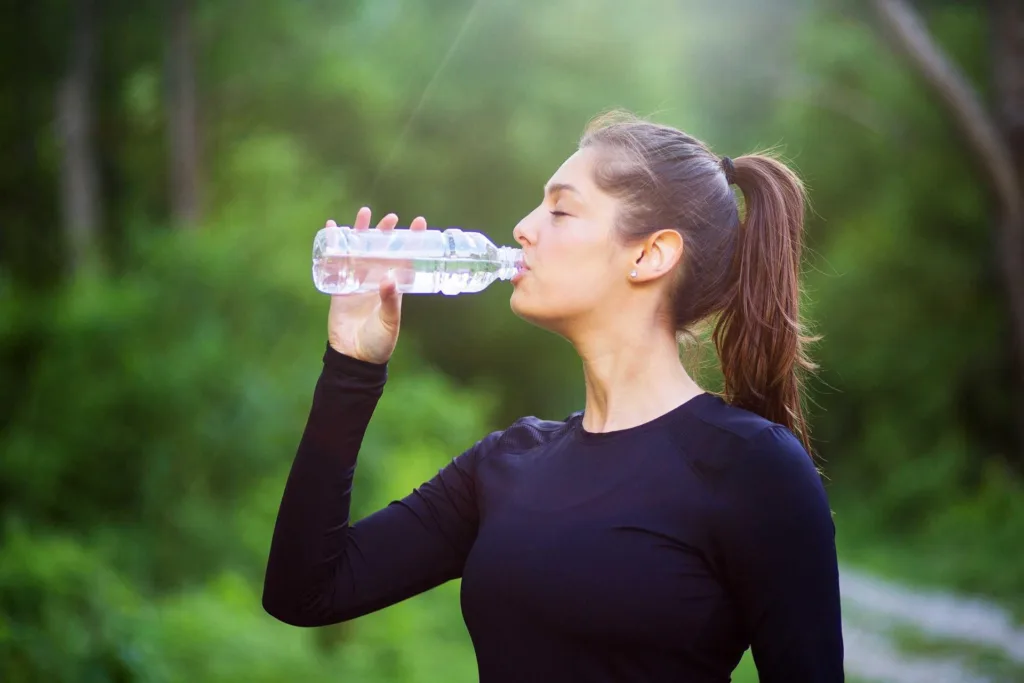
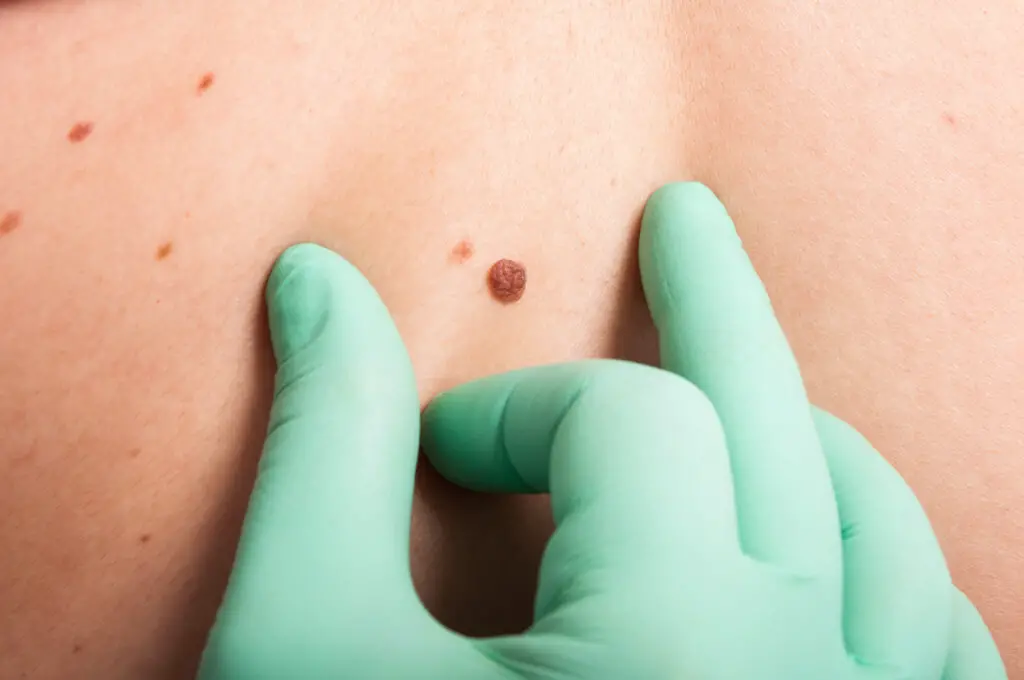


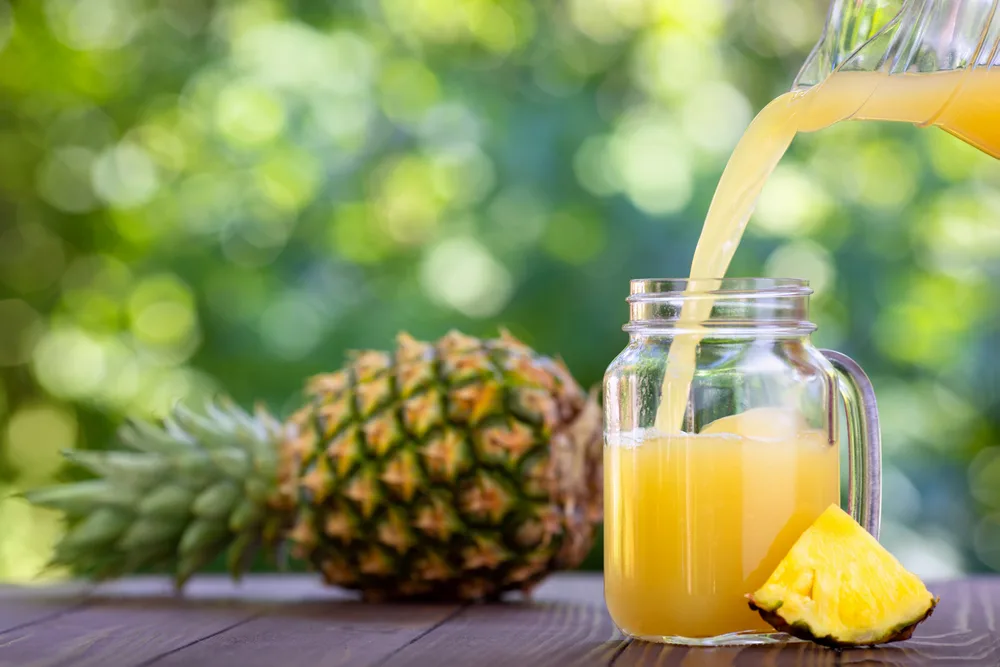
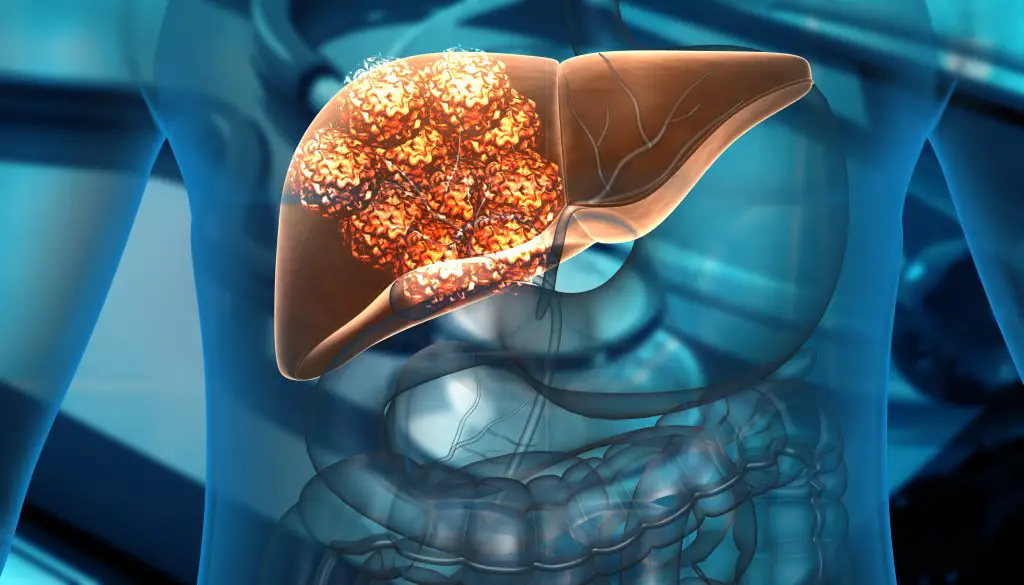


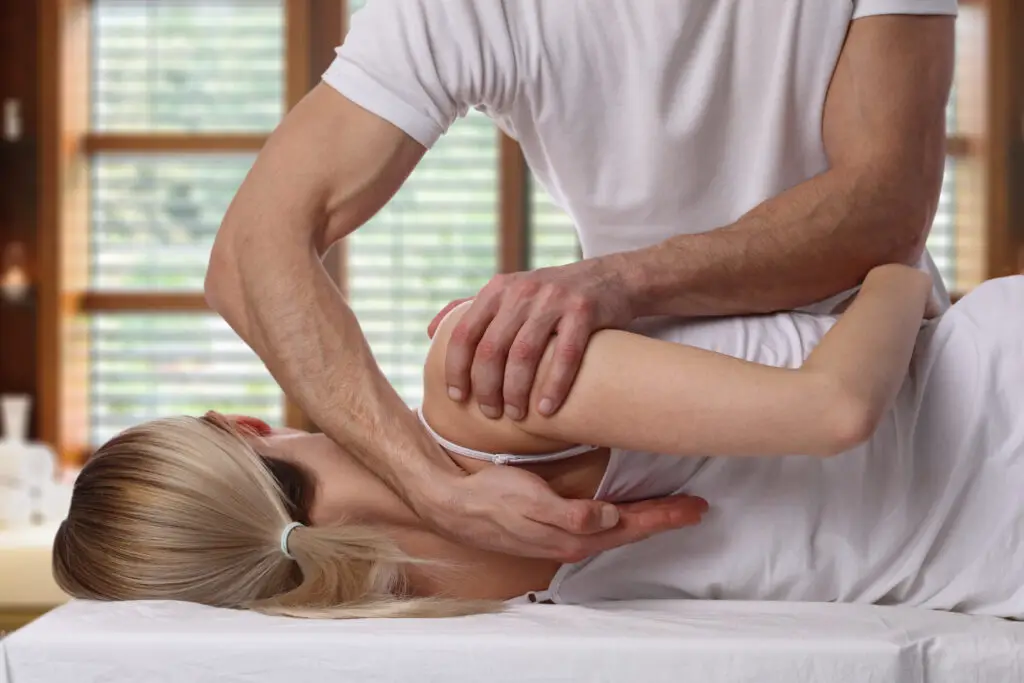
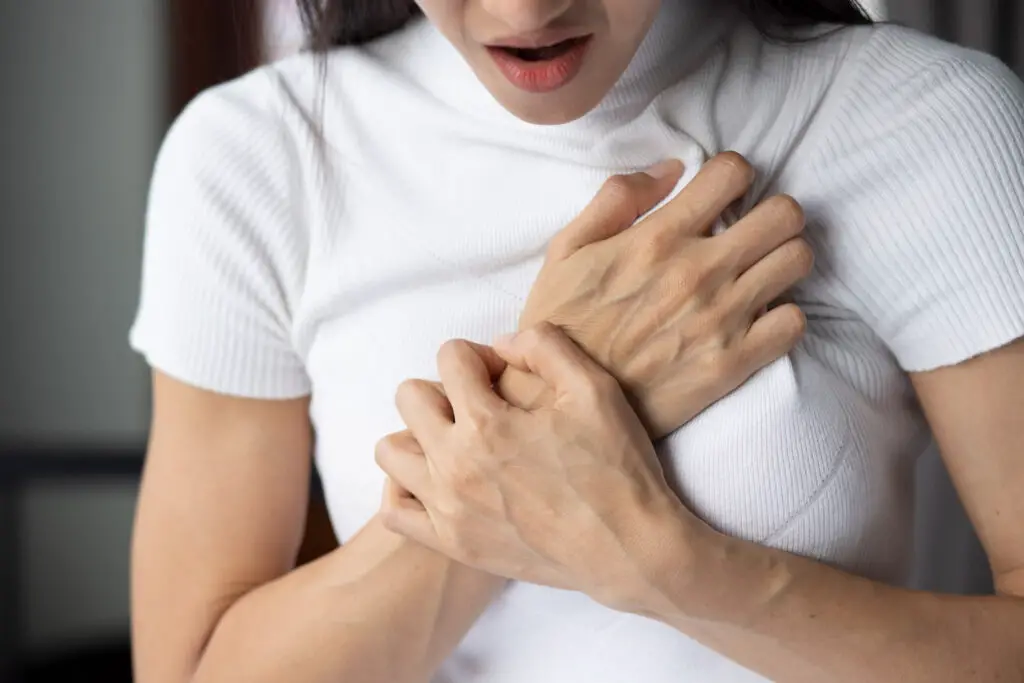

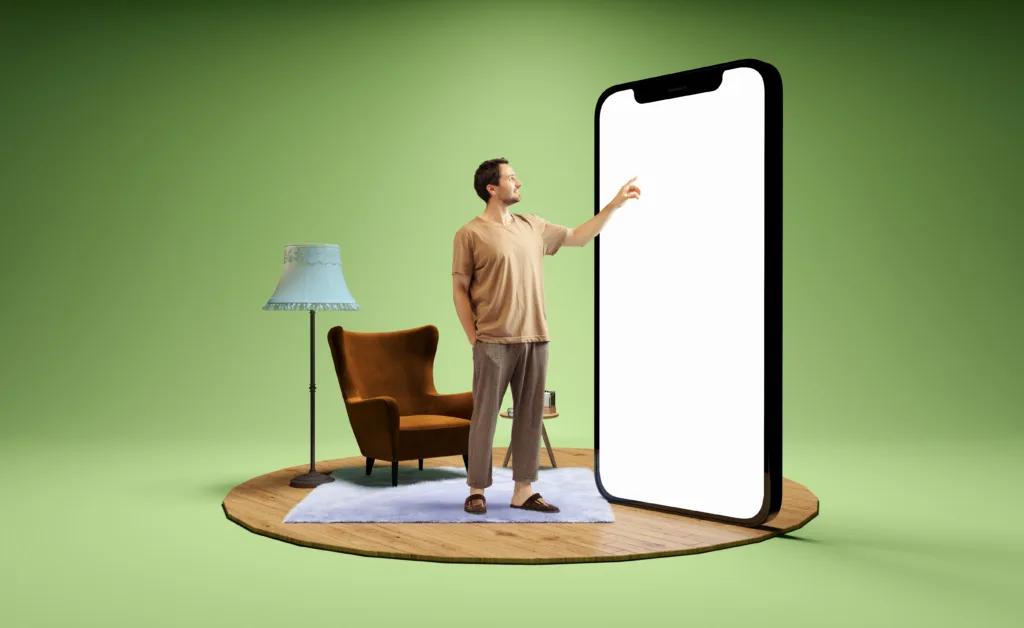
This is the best article on hydration that I have read. Thank you for the information and detail.